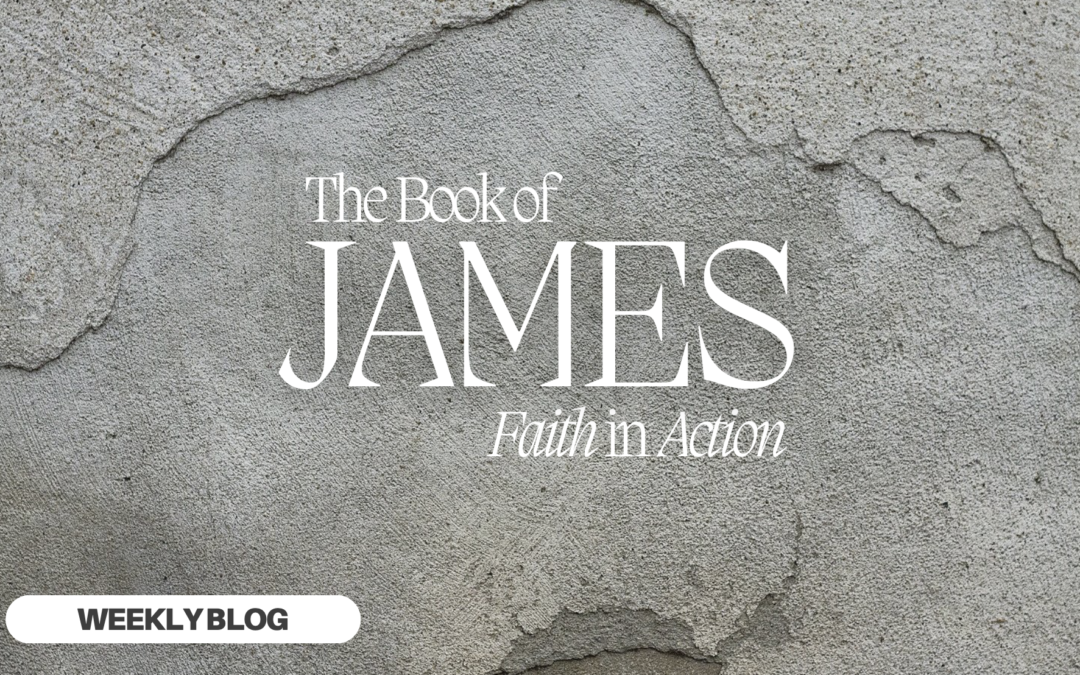JAMES—Week 8
James 4:8-17
Last week we began exploring Chapter 4 of James, and we examined how James pointed out the 3 key adversaries to an active, dynamic faith. This week we will continue our look at Chapter 4 with an examination of 3 destructive attitudes we must avoid.
The first attitude to avoid is pride (vss. 8-10). At some level, every sin with which we struggle is rooted in pride. That’s why God actively opposes those living in pride (vs. 6). It is pride that separates us from God and convinces us we have no need of Him. It is pride that convinces us that we know better than God what is best for us, driving us to pursue our sinful, selfish desires rather than seeking His will. It is pride that pollutes all our motives, making us duplicitous even when pursuing good, or even godly, pursuits. It is pride that convinces us that the crass, vapid joys of this world are suitable substitutes for the joy of the Lord, robbing us of God’s best. Thus, James challenges us to not be so easily satisfied. He admonishes us to abandon the self-gratification of pride for the deeper, richer, more abundant life found in humbly drawing near to God because even our best self-exaltation can not begin to compare to the glory that awaits those who humbly submit to the will of God.
The second attitude to avoid is criticism (vss. 11-12). Really, this attitude is the natural outflow of pride. It is impossible to be critical of others without having an over-inflated view of self. When we are focused on mourning our own sin, we have no time to criticize the sin of others. To be clear, James is not saying that there is not a time and place for us to admonish or correct others. Loving reproof and correction are hallmarks of a healthy Church. However, there is a big difference between criticism and loving correction. Criticism is inherently selfish and prideful. The critic is chiefly concerned with his opinion about a person or situation and continually expresses that opinion until he finds an audience who will validate him. The critic’s goal is self-satisfaction. In contrast, loving correction is chiefly concerned with the good of the other. Personal validation never enters into the equation; it is all about seeing others grow in their relationship with Christ. Thus, it is imperative that we never even consider addressing the sin of others until we have first examined our own hearts for any hint of pride.
The final attitude to avoid is arrogant self-reliance (vss. 13-17). Again, this attitude is rooted in pride, though it can be subtle and nuanced. In fact, this attitude tends to creep into our lives without us even perceiving it. It is almost as if this is our system default. In the busyness of this modern life, we have so many things vying for our time and attention. Before we know it, we are scheduling and planning out our lives based on work or activities or vacations (the secular) with little or no thought of God and His priorities (the sacred). It is not that we are purposefully excluding God; it is just that we rarely stop to think of Him at all. Though we would never actually say this, we act as if all we need God for is the salvation stuff. We can handle the rest. I never cease to be amazed at how I can come to the end of a day and realize just how little I thought of Jesus, even on days when I am actively engaged in ministry. Thus, it is imperative that we choose to engage with God daily, involving Him in all our decisions and making His priorities our priorities.
Questions:
- Read 1 Tim. 1:15. What does this verse say about Paul and his attitude? How do you think Paul’s viewing of himself this way impacted his ministry? How might such an attitude positively impact how you view and relate to others?
- What is the difference between criticism and godly correction? Why is criticism so destructive, especially in the context of the church?
- How do we balance planning for the future with reliance on God?
- Have you ever found yourself living as a spiritual zombie? Are you struggling with that now, living life without consulting God unless it’s absolutely necessary? How do we break that cycle according to this passage?






